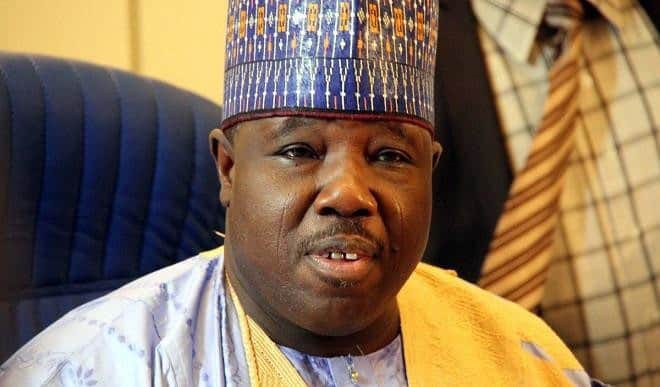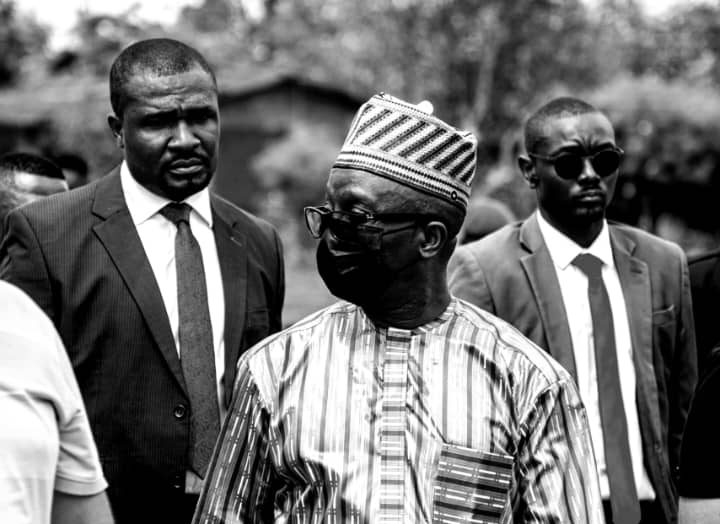Ali Modu Sheriff, former Governor of Borno State, has emphasized the critical importance of regional cooperation in the fight against Boko Haram insurgency in Nigeria. During an interview on Politics Today, a program aired by Channels Television, Sheriff urged the Federal Government to strengthen ties with neighboring countries, declaring that peace in Nigeria cannot be achieved in isolation.
Sheriff, who governed Borno State from 2003 to 2011, stated that countries such as Cameroon, Chad, and Niger must be actively involved in efforts to end the long-running insurgency. He insisted that Boko Haram is not solely a Nigerian issue, but a regional crisis that has been fueled by porous borders and external manipulation.
“What should be done is that we have to have a proper relationship with Cameroon, Chad, and Niger,” Sheriff said. He added that a collaborative security framework involving Nigeria and its immediate neighbors is essential for any lasting solution to the insurgency that has plagued the country’s northeastern region for over a decade.
Reflecting on his time as governor, Sheriff recalled that the severity and origin of the insurgency were initially misunderstood, even by fellow government officials. “Even my next-door neighbour, then governor of Yobe State, did not believe this had nothing to do with the people of Borno,” he said. He stressed that the problem extended beyond state boundaries and was exacerbated by the geographical vulnerabilities of Borno State, which shares land borders with Chad, Niger, and Cameroon.
“These are problems that were coming from outside Nigeria,” Sheriff noted. He explained that these external influences allowed armed groups to infiltrate the country, bringing violence and instability, particularly to border communities in the northeast.
Sheriff also discussed the ideological and financial drivers behind the insurgency. According to him, local actors were being financed and manipulated under the guise of religious motives, a tactic that made the movement harder to contain. He said the groups involved were not only internally driven but were supported by external elements looking to destabilize the region.
“These local actors were being financed and manipulated under religious pretexts,” he stated, highlighting the complexity and multi-layered nature of the insurgency. Sheriff’s remarks point to the necessity of addressing both internal and external dynamics in any counterinsurgency strategy.
In addition to the security issues, the former senator was asked about the ongoing economic hardship facing Nigerians under the administration of President Bola Ahmed Tinubu. Sheriff acknowledged the severity of the situation but cautioned against placing the blame solely on the president.
He suggested that the economic challenges predate the current administration and should be seen within a broader historical and structural context. While not absolving the government of responsibility, Sheriff appeared to advocate for a more nuanced public discourse, warning against scapegoating a single individual for complex national issues.
His comments come at a time when Nigeria is grappling with persistent insecurity, economic instability, and rising public dissatisfaction. The insurgency in the northeast continues to affect thousands of lives, displacing communities, disrupting education and agriculture, and putting pressure on national security forces.
Sheriff’s call for renewed regional alliances aligns with previous recommendations made by security analysts and international partners who have long argued that a multi-national approach is necessary to combat terrorism in West Africa. Joint military operations such as those conducted by the Multinational Joint Task Force (MNJTF) — composed of troops from Nigeria, Chad, Niger, Cameroon, and Benin — have yielded some success, but the insurgency remains active in several areas.
By urging the Tinubu administration to prioritize diplomacy and security collaboration with neighboring countries, Sheriff’s remarks add to the growing demand for a recalibrated counterterrorism strategy. His firsthand experience as a governor during the early years of the insurgency lends weight to his assessment of the regional dimensions of the crisis.
As Nigeria continues to search for solutions to both security and economic challenges, voices like Sheriff’s highlight the importance of regional solidarity, internal reforms, and a strategic understanding of the broader forces at play in shaping the nation’s stability.





